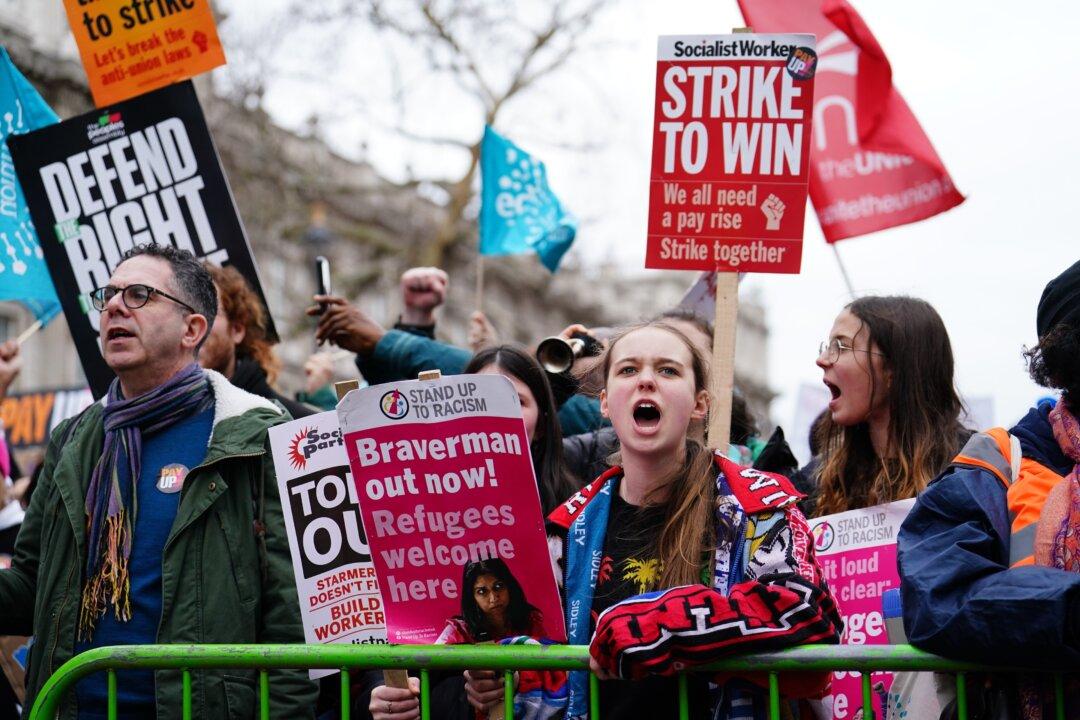The UK saw the biggest single day of strikes in a decade on Wednesday, with up to half a million workers, including tens of thousands of teachers, joining the nationwide industrial action.
The mass walkout involved members of seven trade unions, including civil servants, train and bus drivers, and university staff. Picket lines were mounted outside railway stations, schools, government departments, and universities across the country.





